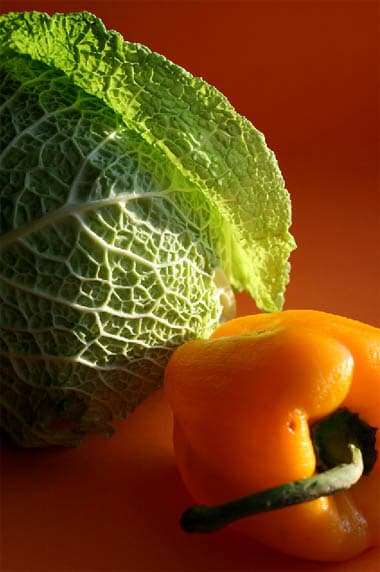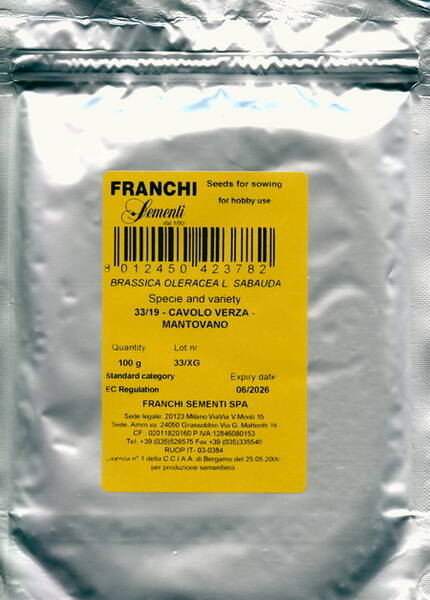Ex Tax: 8,90€
The leaves are much softer and tastier than those of white cabbage. Very useful for children and the elderly.
Late-ripening variety: growing season 105-110 days.
The head of the cabbage is rounded. The rosette is large, with half-raised leaves. The leaf tissue is bubbly, grey-green, medium wax coating.
The variety is frost and drought resistant, relatively resistant to head cracking. Can be stored at -1-3 ° C.
Growing conditions.
Sowing seeds to a depth of 1-2 cm (1.0 g = 250-320 seeds). At an optimum temperature of + 17 + 20 ° C, seedlings appear on the 7-12th day.
The culture is moisture and light-requiring. Placed on fertile soils.
Sowing: March (2,3).
Transfer: May.
Harvest: September.

.jpg)
Eng.: Savoy Cabbage. Suom.: Savoijinkaali. Sven.: Savoykål. Bot.: Brassica oleracea L. convar. capitata var. sabauda.
* In terms of the structure of the head of cabbage, Savoy cabbage is similar to white cabbage, but differs from it in its strongly bubbling, corrugated structure of leaves, greater looseness of the head of cabbage and delicate taste. Heads of cabbage have various shapes: from round-flat and round to oval and conical. The leaves are colored in various shades of green, in some varieties they are purple.
The requirements for growing savoy cabbage are the same as for white cabbage. However, Savoy cabbage is less whimsical, grows on any soil, does not require special fertilizers. It perfectly tolerates bad climatic conditions and is more resistant to frost.
Savoy cabbage is highly regarded as a nutritious and dietary vegetable. Its heads of cabbage contain protein, ash substances, vitamins C, E, carotene, thiamine, riboflavin, potassium, phosphorus and iron salts. This cabbage contains mannitol alcohol (a sugar substitute for diabetics, while other types of cabbage do not contain it), as well as mustard oils and phytoncides. It is rich in amino acids, carbohydrates and pectins. This cabbage is very beneficial for children and the elderly. It is a good diuretic and prevents high blood pressure.
Savoy cabbage is still not very common among gardeners, since it is stored for no more than 2 months. But many do not know that it can be left under the snow for the winter right in the garden. In January-February, the snow is raked, the heads of cabbage are cut down and immersed in cold water for a few minutes.
Savoy cabbage can be used to prepare first and second courses, use in salads, in pie fillings. It is not suitable for fermentation.















